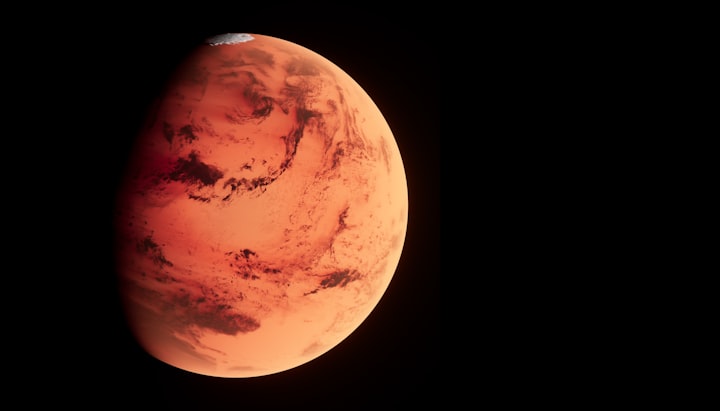
Life on Mars, our neighboring planet, has piqued the imagination of both scientists and adventurers. It has long been theorized that the Red Planet formerly possessed life-supporting conditions, and recent technological advances have allowed us to investigate its surface more thoroughly than ever before.
Several missions to Mars have been launched recently to seek evidence of past or current life. Curiosity, the Mars Rover, has been investigating the planet's surface since 2012, acquiring data and samples that might provide information about Mars' geological past and possible habitability.
While no definite proof of life on Mars has yet been discovered, the chance remains. The planet features polar ice caps, dry riverbeds, and evidence of former water activity, all of which suggest that it once had a habitable climate.
Human colonization of Mars has also garnered pace in recent years. Companies like SpaceX, headed by Elon Musk, aim to construct a human community on Mars. While there are several hurdles to living on Mars, such as harsh climatic conditions and limited resources, the potential benefits of establishing a human presence are equally significant.
The quest for life on Mars continues, and the prospects for future human exploration and habitation on the planet are intriguing. As our knowledge of Mars expands, so does our interest in this fascinating and compelling place.
Despite the numerous hurdles, the benefits of establishing a human presence on Mars are significant. This includes the prospect of scientific discovery, the spread of human civilization, and the creation of a backup plan for our species' survival in the event of a catastrophic disaster on Earth.
However, various technological and logistical hurdles must be addressed before any human settlement plans can be fulfilled. These include creating the technology required for long-term existence on the planet, such as life support systems and radiation shielding, as well as ensuring that people can grow food and have access to adequate water and other resources to live.
Another critical consideration is the expense of such an undertaking. Sending personnel and supplies to Mars would necessitate significant time, resources, and money investments. An international collaboration between government and business groups is likely required to make it a reality.
Despite these obstacles, the potential benefits of living on Mars are too tremendous to pass up. Exploration and research on this interesting planet have the potential to significantly expand our understanding of the cosmos and our role in it. It remains to be seen if humanity will someday call Mars home, but the voyage to find out will undoubtedly be thrilling and interesting.
The quest for life on Mars and the possibility of human exploration and habitation is a topic of continuous study and debate among scientists and explorers. While the hurdles are enormous, the potential rewards make the path to a Mars-based future worthwhile.
Another consideration is the possible influence of human presence on the Martian environment. While no sign of life on Mars has yet been discovered, it is critical to approach exploration and colonization with caution and respect for the planet's unique and vulnerable biosphere.
Plants, bacteria, and other species would be introduced to the Martian surface to create a more Earth-like habitat.
Terraforming, on the other hand, is a complex and time-consuming process that presents ethical and environmental considerations. We must proceed with caution and thoroughly assess the possible ramifications of our actions.
Finally, the opportunities and difficulties of life on Mars are vast and diverse. From scientific discoveries and human civilization development to the ethics of terraforming and the influence on the Martian environment, the route to a future on Mars will undoubtedly generate crucial concerns and discussions.
Our responsibility is to approach this adventure with prudence, respect, and a determination to develop solutions that balance our aims and aspirations with conserving and preserving the Martian environment. We can unleash life's full potential on Mars with the appropriate combination of creativity, cooperation, and ethical concerns, paving the way for a new era of exploration and discovery.
About the Creator
Nedelcu Alina
Life’s short, eat the cake 🍰






Comments (1)
Life on Mars is really an important topic to discuss.